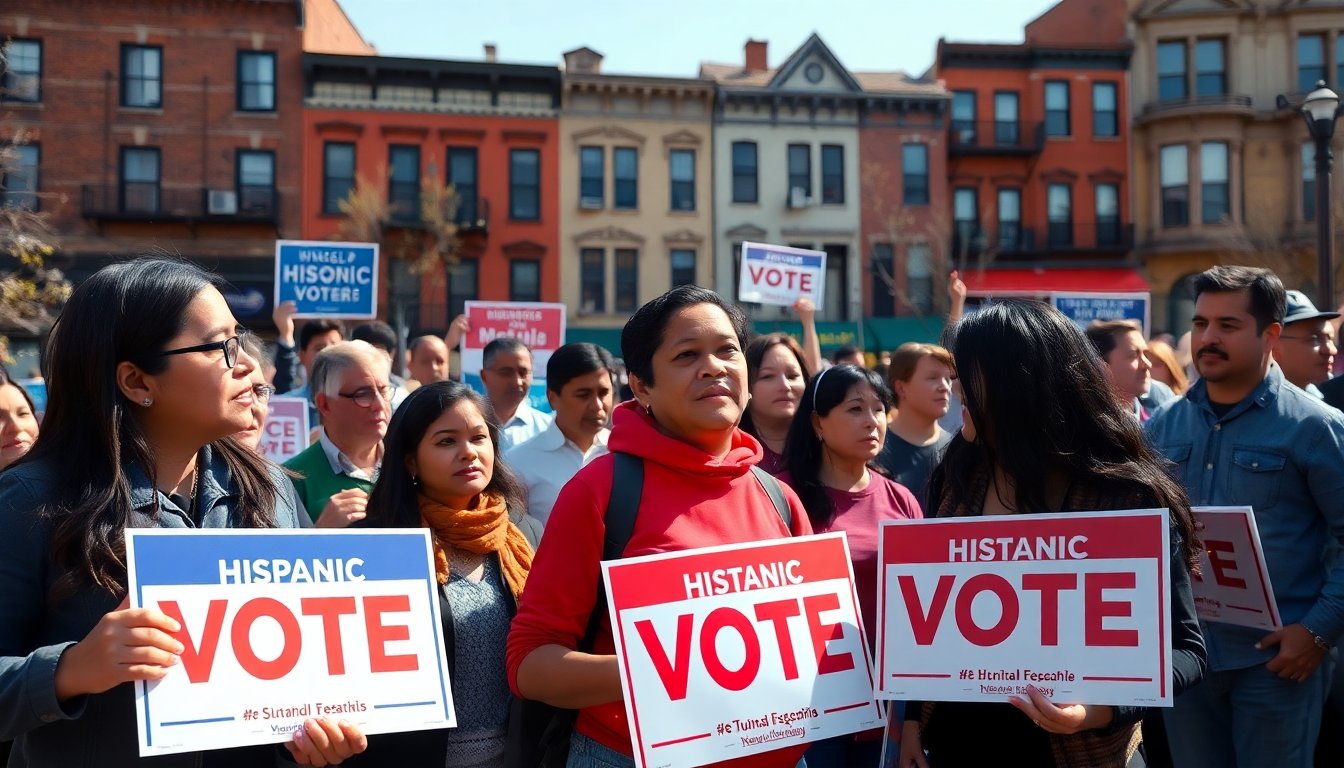Table of Contents
“`html
The political climate in New Jersey is pivotal in understanding the evolving landscape of the Hispanic vote in the United States. As the off-year gubernatorial election approaches, analysts are monitoring how Hispanic communities react to the political strategies of both major parties. This election offers a critical opportunity to evaluate whether the gains made by President Trump signify a lasting shift or a temporary change in voting behavior.
Examining recent election results
In the recent presidential election, President Trump demonstrated notable success in regions of New Jersey with majority-Hispanic populations. This marks a significant departure from traditional voting patterns, where these communities typically leaned Democratic. The implications of this shift are profound and may indicate a broader trend among Hispanic voters, who have historically been viewed as a reliable Democratic bloc.
Factors influencing voter behavior
Multiple factors contributed to the surprising support for Trump in the recent election. Economic issues, particularly job security and inflation, were significant. Many Hispanic voters, especially from immigrant backgrounds, sought policies that promote economic stability and growth. The belief that Trump’s administration prioritized business interests may have resonated with these communities, challenging traditional assumptions about Hispanic voting trends.
Social issues also played a crucial role. Immigration reform and public safety were key topics influencing opinions. Trump’s emphasis on law and order may have attracted voters who prioritize community safety, contrasting with the Democratic focus on social justice. This complex interaction of factors necessitates a thorough exploration of what drives voting decisions within Hispanic communities.
The significance of the upcoming gubernatorial race
The upcoming gubernatorial race is a crucial moment for the Republican Party in New Jersey. It will test the party’s ability to connect with Hispanic voters. Observers are eager to see if the GOP’s strategies will resonate with this demographic. Alternatively, will traditional Democratic policies continue to attract their support?
Potential implications for future elections
If the Republican candidate succeeds in Hispanic-majority areas, it may transform the national dialogue regarding the Hispanic vote. Political analysts are exploring a scenario in which the GOP strengthens its support within these communities, potentially altering voter alignment nationwide. Such a development would not only affect local elections but could also have profound implications for federal elections, shaping strategies for both parties in the future.
On the other hand, failing to engage these voters could reinforce the Democratic Party’s current strategies and deepen established voting patterns. The results of the New Jersey race will provide valuable insights for both parties as they prepare for upcoming elections.
The future of the Hispanic vote in New Jersey
The New Jersey gubernatorial election serves as a significant indicator of the evolving preferences within the Hispanic electorate. This election offers critical insights into how Hispanic voters are shaping their political affiliations and priorities. Observers should pay close attention, as the outcomes may signify a pivotal moment in American electoral politics.
The Hispanic vote, often perceived as a uniform group, is actually diverse and influenced by a variety of issues. The New Jersey race will be an important measure of whether the Republican Party’s recent gains reflect a temporary anomaly or signal a broader shift in voter sentiment that could impact future elections.
“`


